Southern Construction Framework Construct becomes an early adopter of the Carbon Reduction Code for the Built Environment
Southern Construction Framework (SCF) Construct, a leading construction procurement framework delivered by the public sector for the public sector, is the first organisation of its kind to sign up to the Carbon Reduction Code for the Built Environment, which forms part of the Construction Leadership Council’s Construct Zero initiative.
In a move that signals its commitment to promote sustainability, SCF’s work to support clients in ensuring the built environment minimises its carbon impact has enabled SCF Construct to become an early adopter of the Code, which is hosted by the Centre for Smart Infrastructure and Construction (CSIC) at the University of Cambridge.
The Code is a first step to facilitate action and collaboration by relevant parties towards reducing carbon emissions (CO2eq) related to design, construction, maintenance, operation and decommissioning of built assets.
All organisations who comply to the Code must set out plans to meet Net Zero by 2045, including annual targets, recognising that the majority of cuts need to be made by 2030, and publish this, and progress against it, annually.
There are three levels of compliance to the Code – pledger, signatory, and champion. SCF Construct is the first framework to attain pledger status, and is now working towards signatory status under the Code.
SCF signed-up to the Code following the launch of the SCF Net Zero Carbon Guidance tool which is aimed at helping SCF clients make informed decisions and includes a mandatory carbon assessment of all SCF-related jobs.
The SCF’s Climate Emergency Response Group has been led by Emma Bull, SCF Senior Framework Manager, to ensure contractor and consultant partners continue to support clients in making carbon-zero central to the decision-making process in all SCF projects.
Emma said: “We are all delighted that our work to support clients in minimising their carbon impact has been officially recognised.
“SCF is truly collaborative and has at its disposal a number of major partners engaged in several working groups which concentrate on key themes to direct focus areas.
“By working together, we can make a positive difference to the environment, and we know we have a long way still to go, but we are looking forward to seeing our plans turn into reality.”
SCF Construct first adopted the Carbon Reduction Code as a blueprint for its work in early 2021 and since then has referred to the Code to identify actions to step up efforts to reduce carbon on its projects across the South of England.
“We are delighted to welcome the early adopters of the Carbon Reduction Code for the Built Environment who have all complied with the process and forged the way for other organisations to follow,” said Dee Dee Frawley, CSIC Programme Manager.
“There are a number of organisations already in the pipeline who will sign-up to the Code in the coming months, but we are particularly grateful to the early adopters who have worked closely with us to test, trial and prove the compliance process for the Code.
“Carbon reduction is more likely to happen when all organisations within a value chain are committed to reducing their footprint and saving costs and the Code provides a framework for organisations to make a public commitment to and report on progress towards achieving Net Zero.”
SCF is working towards meeting local, national and global goals including the Net Zero carbon ambition, working with communities to deliver a Net Zero future. Now all SCF partners are committed to positively promoting sustainability for SCF projects encompassing positive social and environmental legacies.
Among the measures it has taken, is the establishment of the Carbon Emergency Response Group (CERG), which is a collection of national sustainability experts in the partners’ organisations.




